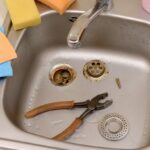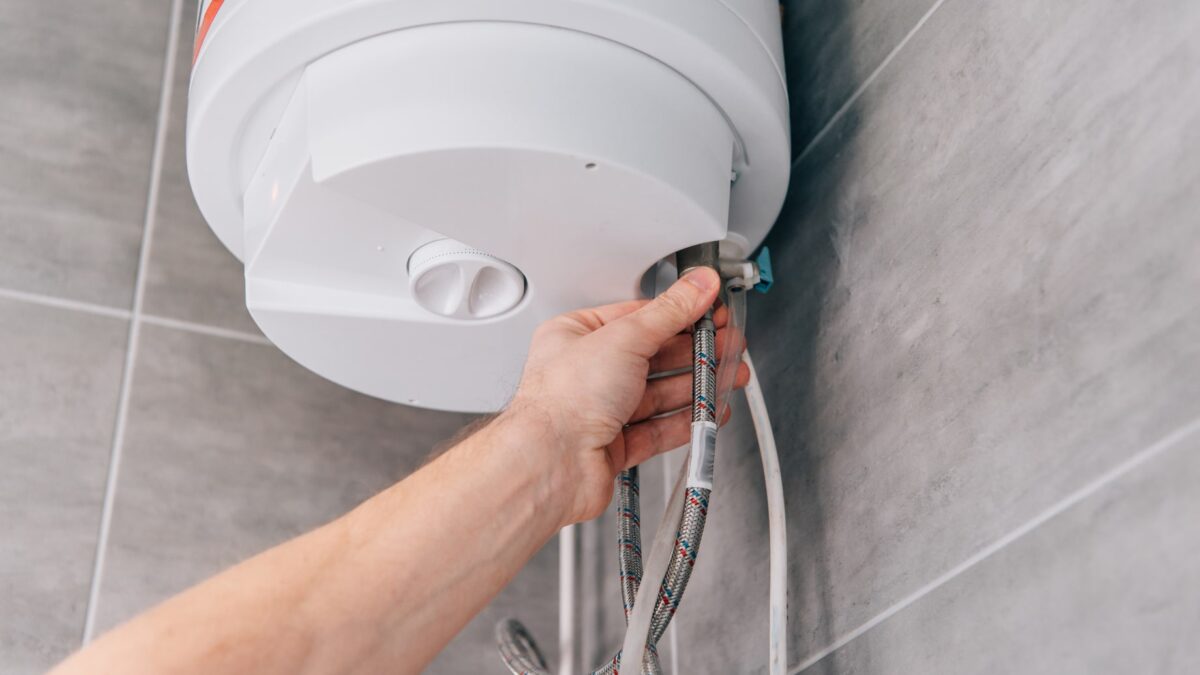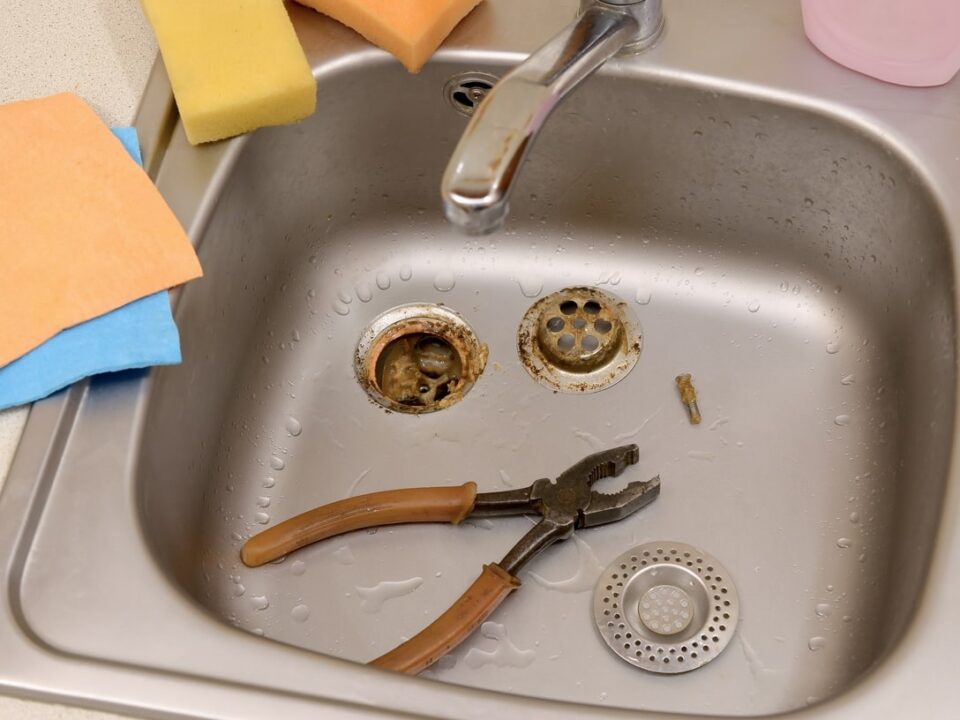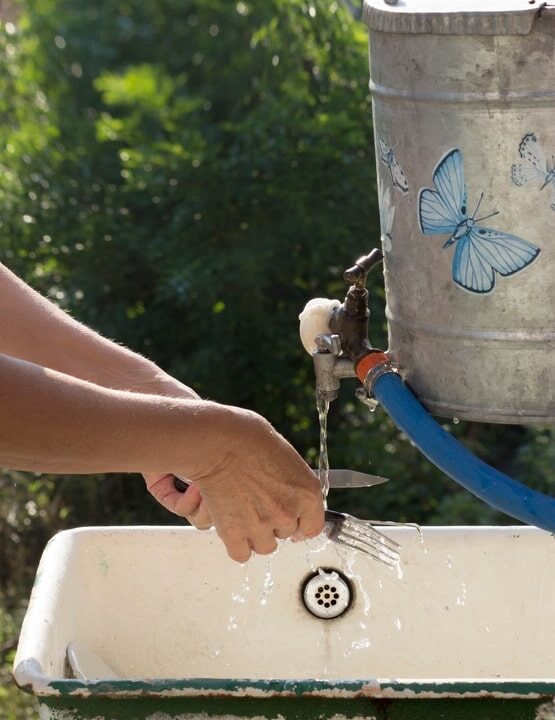
Solving Gurgling Drains: Why Does My Kitchen Drain Gurgle and How to Fix It?
April 6, 2024
The History of Plumbing in Venice: From Then to Now
May 2, 2024
Are you tired of running out of hot water too quickly?
We explore the common causes of hot water depletion in your water heater and provide solutions to prevent this frustrating issue.
From sediment buildup to malfunctioning heating elements, we discuss the reasons behind your hot water troubles.
Learn how regular maintenance, flushing the tank, and upgrading to a larger water heater can help you avoid running out of hot water.
Discover when it’s time to call a professional for assistance with your water heater problems.
What Is a Water Heater?
A water heater is an essential appliance in any home, responsible for heating water for various household needs such as showers, cleaning, and cooking. It ensures a ready supply of hot water to meet the demands of the residents efficiently.
Having a water heater that functions effectively is crucial for ensuring comfort and convenience in daily routines. From starting the day with a refreshing hot shower to washing dishes and doing laundry, hot water is integral to many tasks.
Regular maintenance of the water heater is vital to keep it running efficiently and to prevent unexpected breakdowns. By maintaining your water heater properly, you not only ensure energy efficiency but also extend its lifespan, providing a continuous supply of hot water without disruptions.
Types of Water Heaters
There are several types of water heaters available on the market, each with its unique features and benefits. Understanding the different types can help homeowners make informed decisions about energy-efficient options that suit their needs.
- Tankless water heaters, for example, heat water directly without the use of a storage tank, providing hot water on demand and potentially saving energy costs.
- On the other hand, traditional tank water heaters store hot water in a tank, ready for use, but may be less energy efficient.
- Heat pump water heaters and solar-powered water heaters are also environmentally friendly options, utilizing renewable energy sources to heat water.
When choosing the right water heater for your home, factors such as available space, energy efficiency, upfront costs, and maintenance requirements should all be considered.
What Causes Hot Water to Run Out Quickly?
Hot water running out quickly can be caused by various factors such as sediment buildup in the tank, malfunctioning heating elements, faulty thermostats, or having an undersized water heater for the household’s needs.
Sediment buildup is a common issue that occurs over time as minerals and debris settle at the bottom of the water heater tank, reducing its efficiency. This buildup insulates the water from the heating elements, making it harder for the water to get heated effectively.
In addition, heating elements can degrade or fail over time, leading to inadequate water heating. A malfunctioning thermostat may inaccurately read the water temperature, causing the heater to turn off prematurely.
An undersized water heater struggles to meet the demands of a household, resulting in hot water running out quickly during peak usage times. Regular maintenance and timely troubleshooting are essential to address these issues promptly and ensure a consistent supply of hot water.
Sediment Buildup in the Tank
Sediment buildup in the water heater tank is a prevalent issue that can reduce the heating efficiency and water pressure, leading to inadequate hot water supply. Flushing the tank regularly is essential to remove sediment and maintain optimal performance.
Over time, if sediment is left to accumulate in the water heater tank, it can create clogs within the system, causing damage and potentially leading to costly repairs or even the need for a full replacement of the unit.
The presence of sediment can decrease the overall lifespan of the water heater due to the strain it places on the heating elements and other components.
By implementing a routine flushing schedule as part of regular maintenance, homeowners can not only prevent these issues but also ensure consistent water pressure and improved energy efficiency.
Malfunctioning Heating Element
A malfunctioning heating element in a water heater can result in inconsistent water temperature and reduced hot water production. Proper troubleshooting and timely repair services or considering replacement options are crucial to ensure an uninterrupted hot water supply.
If you notice your water heater struggling to maintain the desired temperature or if you hear strange noises coming from the unit, it could indicate a problem with the heating element. In such cases, it is recommended to first check the thermostat settings and the electrical connections to rule out any simple fixes. If the issue persists, contacting a professional repair service is advised, as attempting to repair the heating element yourself can be dangerous and may void any warranties. Ultimately, if the heating element is beyond repair, opting for a replacement unit might be the most cost-effective solution in the long run to ensure your household’s hot water needs are met.
Faulty Thermostat
A faulty thermostat can lead to scalding hot water or lukewarm temperatures, posing safety risks to household members. Properly setting and maintaining the thermostat is essential to prevent accidents and ensure a safe hot water supply.
In addition to the risk of scalding, a malfunctioning thermostat may also result in inadequate hot water temperatures, causing inconvenience and discomfort. To mitigate these dangers, it is recommended to consult the manufacturer’s guidelines for the optimal temperature setting, typically around 120 degrees Fahrenheit, to balance safety and efficiency.
Regularly checking and calibrating the thermostat, as well as implementing safety precautions like installing anti-scald devices in showers and faucets, can further reduce the likelihood of accidents. If there are persistent issues with the thermostat, it is crucial to seek professional assistance to diagnose and address the problem effectively.
Undersized Water Heater
Using an undersized water heater for the household’s hot water demands can lead to constant shortages and inadequate supply. It is crucial to assess the household needs, consider a professional inspection, and detect any leaks or inefficiencies for optimal hot water provision.
A key challenge of having an undersized water heater is the inability to meet the demand during peak usage times, such as in the mornings or evenings when multiple showers or appliances are running simultaneously. This can result in frustration and inconvenience for household members.
By ensuring that the water heater’s capacity aligns with the specific needs of the household, individuals can avoid such shortages and maintain a consistent supply of hot water.
Professional inspections are essential to evaluate the adequacy of the current system and identify any potential issues that may be impacting its performance. Regular leak detection and maintenance practices are also crucial in ensuring the efficient operation of the water heater and preventing any costly damages in the long run.
How Can You Prevent Hot Water from Running Out Quickly?
Preventing hot water from running out quickly involves proactive measures such as regular maintenance, flushing the tank to remove sediment, and considering upgrading to a larger water heater that can meet the household’s hot water demands effectively.
Regular maintenance is essential to ensure that your water heater operates efficiently. It’s recommended to schedule annual inspections by a professional to catch any issues early on. Flushing the tank is also crucial as sediment buildup can decrease the heater’s efficiency. Upgrading to a larger water heater provides a long-term solution, especially for larger families or homes with high hot water usage. By taking these preventive actions, homeowners can enjoy a steady and uninterrupted supply of hot water throughout the year.
Regular Maintenance
Regular maintenance of a water heater is crucial to ensure optimal performance, energy efficiency, and longevity. Scheduling professional inspections, checking for leaks, and maintaining components like the heating element and thermostat are essential for preventing issues that may lead to hot water shortages.
By having regular professional inspections, potential problems can be identified before they escalate, ensuring that the water heater functions efficiently and effectively.
Detecting and repairing leaks promptly not only prevents water wastage but also safeguards the structure from water damage.
Focusing on key components like the heating element and thermostat helps in maintaining consistent water temperature and reducing energy consumption, leading to cost savings in the long run.
Consistent maintenance not only prolongs the lifespan of the water heater but also provides an uninterrupted hot water supply for daily needs.
Flushing the Tank
Flushing the water heater tank is a critical maintenance task that helps remove sediment buildup, improve water pressure, and enhance the overall efficiency of the appliance. Regular flushing can prevent clogs and ensure a consistent supply of hot water for household needs.
Sediment accumulation in the water heater tank can lead to reduced heating efficiency, increased energy consumption, and even potential damage to the unit over time. To begin the flushing process, homeowners should first turn off the power supply to the water heater. This step is crucial for safety reasons and to prevent any accidents during the maintenance procedure. Next, connect a garden hose to the drain valve located at the base of the heater to facilitate easy drainage of the tank water and sediment. It is advisable to direct the hose to a suitable drainage area or a bucket to contain the discharged water and debris.
Upgrading to a Larger Water Heater
Upgrading to a larger water heater can address hot water shortages caused by an undersized unit. Assessing the household’s water usage patterns and needs is essential to determine the appropriate size that can deliver a consistent supply of hot water for various activities.
It is crucial to consider the number of occupants in the household, the frequency of hot water usage, and the types of activities requiring hot water, such as showers, dishwashing, or laundry. By selecting a water heater with a capacity that aligns with these factors, you can ensure that there is always enough hot water available.
Opting for an energy-efficient model not only reduces utility bills but also benefits the environment. Energy-efficient water heaters can provide the desired hot water while minimizing energy wastage, making them a sustainable choice for long-term hot water needs.
When Should You Call a Professional?
Knowing when to call a professional for water heater issues is crucial to prevent potential emergencies and ensure the appliance’s optimal performance. Instances such as no hot water, leaks, unusual noises, or inconsistent water temperatures warrant immediate attention from licensed plumbers.
Neglecting these warning signs could lead to more significant problems, such as water damage, increased energy bills, or even a complete breakdown of the water heater. Prompt repair services not only maintain customer satisfaction but also help in addressing issues effectively and preventing costly repairs down the line. By seeking professional assistance, homeowners can ensure that their water heaters are functioning efficiently and safely, providing them with the comfort and convenience they rely on daily.
No Hot Water at All
The absence of hot water in a household can signal a critical issue with the water heater, requiring immediate attention from licensed plumbers. Seeking expert advice and prompt repair services is essential to diagnose the problem accurately and restore the hot water supply efficiently.
Without hot water, daily routines can be disrupted, causing inconvenience and discomfort. It’s crucial to contact a licensed plumber quickly to address any underlying issues with the water heater. These professionals have the knowledge and tools to troubleshoot and fix the problem effectively, ensuring that your hot water supply is restored promptly.
Ignoring the lack of hot water can lead to further damage and safety hazards, making it vital to prioritize emergency services and rely on certified experts for a lasting solution.
Leaking Water Heater
A leaking water heater can cause water damage, mold growth, and structural issues if left unaddressed. Conducting leak detection, seeking professional repair services promptly, and implementing safety precautions are essential to prevent further damage and ensure the appliance’s proper functioning.
Ignoring a leaking water heater can lead to extensive damage not only to the appliance but also to your home’s structure. Water leaks can weaken floors and walls, causing potential collapses or structural integrity problems. Stagnant water from leaks can create a breeding ground for mold and mildew, posing health risks to you and your family. Timely detection and repair of leaks not only save you from costly repairs but also prevent safety hazards like electric shocks or gas leaks.
Strange Noises Coming from the Water Heater
Unusual sounds emanating from a water heater indicate potential issues with the appliance’s components or operation. Proper troubleshooting, routine maintenance, and timely repair services are necessary to identify the root cause of the noises and address them effectively to maintain the water heater’s efficiency.
These strange noises can vary from popping and rumbling to hissing or banging sounds, signaling different underlying problems within the water heater. Neglecting these sounds can lead to more severe issues, affecting the unit’s performance and longevity.
By conducting regular maintenance such as checking the heating element, flushing out sediment buildup, and inspecting the thermostat, homeowners can prevent potential breakdowns.
If the noises persist or worsen, seeking professional repair services is crucial to accurately diagnose and resolve the issues, ensuring the water heater operates smoothly and efficiently.




